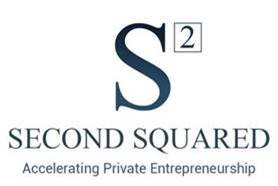I, Searcher – Selling Search to Sceptics – Finding the ‘right’ investors (Blog 3 of 4)

July 24, 2020
by an investor from University of Canberra in Perth WA 6000, Australia
The Searcher Value Proposition to an investor balances both commercial and cultural considerations. Investors who understand EtA know that it is not just about the cold hard numbers, but also a deeper relational aspect (with the Searcher) and that this is essential to success. This means that EtA isn’t for every investor so finding them in a marketplace like Australia that has relatively little to no understanding of the EtA model can be a challenge.
We explored these themes in a recent meeting between current and intending searchers with Nikita Gossain, Alex Simmons, Greg Green and Nick Bamford, to identify where the value proposition lies for searchers in balancing the commercial and cultural ‘fit.’
So, from an investor’s perspective, outside of an IRR number that they are pushing for from you, what other value is a Searcher creating? And what are you looking for when shopping around for your investor base?
Nikita Gossain identified a clear non-commercial attribute around the investor’s desire to ‘give back.’ “When I speak to potential investors in the EtA space, mentorship is a huge part of it for them. I think that they are kind of living vicariously through you. They’ve been where I am, had a similar journey themselves, and backing a younger, smart and focussed Searcher is actually a huge thing for some investors.
“I also found that many EtA investors have a cap on the number of investments that they will in order to provide the quality time to mentor and advise searchers to increase the odds of success.”
Alex Simmons agrees. “Despite the fact that some of my investors have limited bandwidth, I’ve benefited greatly from the contact I have with them. Some have more time than others. Regardless, all have provided guidance and support in many different ways.”
When it comes to the time to sell the benefits of the EtA model itself, Nick Bamford provides some additional insights. “The conversation on providing guidance and mentoring has been far more powerful than “cold hard cash” conversations alone. You still have to have the commercial conversations to back you up, but I find its an easier sell to begin with the softer benefits first. You know – ‘I’m looking for some people to be on a journey with me.’ And that resonates well.
“Selling yourself and the process of EtA as a ‘commercial proposition’ is essential too. Even when you get pushback. I think the model provides some real benefits that investors don’t immediately see. With some potential investors I’ve met with, they are keen to explain to me why small cap investments like EtA don’t work out very well because they don’t have the bandwidth to do the deal sourcing and do proper due diligence. My take away from meetings like that is that real value we can give is to ask them ‘so, what’s it going to cost you and your team to do the sourcing and the diligence? Especially if you take a traditional syndicated or private equity route?’ In the EtA model, the investor gets – for a relatively small upfront investment – a dedicated resource who will follow a structured process, is passionate about the sector and is funded to find, do the diligence, acquire and operate the entity you finally invest in.
“I think that the ability to articulate this point to investors is essential to success in a sceptical market.”
“You are searching for investors who will get super excited about working with you. And vice versa.” says Greg Green. And all the Searchers we spoke with agreed that the commercial conversations – about markets, targets, deal origination etc, are a part of the ‘job interview’ that you are having with investors. What the genuine EtA investors are really looking for beneath it all is that you are the kind of person who is smart, enjoys bouncing ideas around and can take feedback openly, can listen, and can sell.
Keen to learn more about Search Funds and Entrepreneurship through Acquisition in Australia? Contact us at redacted – we’d love to begin the conversation. Checkout our Resource Page too for the latest global research and information on Search Funds.
